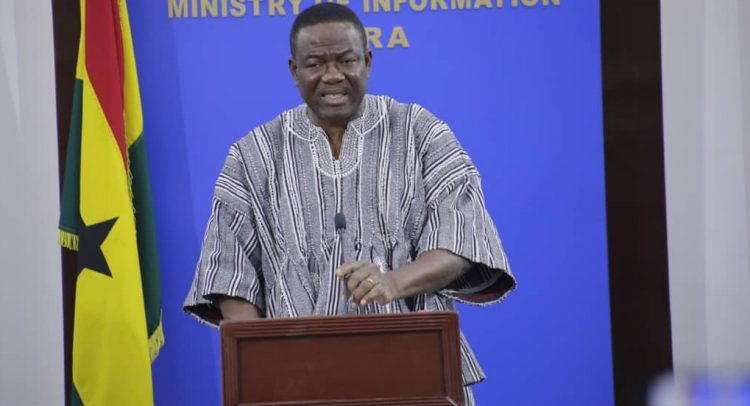Kofi Dzamasi
The Ministry of Chieftaincy and Religious Affairs has issued guidelines to the Christian and Muslim communities detailing how it plans to enforce the coronavirus protocols as the government begins stage one of the processes of easing restrictions on religious activities starting from Friday.
The religious activities guidelines, which were put out on Monday by the sector Minister, Kofi Dzamesi, contain the requirements and obligations of churches and mosques as part of the measures to deal with the Covid-19 pandemic.
Besides, the guidelines, which demand religious organisations to display approved health promotion materials on Covid-19 at vantage points to remind congregants to keep to social distancing protocols, wearing of masks, regular hand washing, coughing, and sneezing etiquette, also hint of sanctions against leaders of the religious bodies for violations.
Detailing the guidelines, the Religious Affairs Ministry said “an abridged format for religious services can commence and all worshippers are entreated to dedicate their first service for the prayer for the nation in this challenging time.”
“Twenty-five per cent (25%) attendance with a maximum number of 100 congregants can worship at a time in a church or at a mosque, with a mandatory one (1) metre rule (3 feet) of social distancing between congregants.
“In addition, all congregants must wear masks at all times, wash hands with soap under running water or rub with alcohol-based hand sanitizer before entry, avoid handshaking or body contact,” the ministry pointed out.
“Register details including phone numbers, manually or digitally. Digital registration can be done on GH COVID-19 APP on PANABIOS APP which can be downloaded at no cost,” it added.
Specific Protocols (Churches)
It indicated that churches must ensure that thermometer guns or thermal scanners are provided to check the temperature of congregants at entry points of all venues as necessary, and apply “a no mask, no entry policy.”
The ministry also wants the churches to provide handwashing facilities with running water and soap and/or FDA approved alcohol-based hand sanitizer at their venues and make provision of adequate waste management facilities (bins, cans, bin-liners and single-use tissues) as well as provision of adequate toilet facilities for use by members.
It also recommended regular cleaning and disinfection of frequently used communal places (like toilet surfaces) and frequently touched surfaces such as doorknobs/handles, preferably every 1-2 hours depending on the rate of utilization.
The ministry wants the churches to ensure that there is “no handshake, no hugging and no spit policy at all time.”
Among the guidelines is the formation of Covid-19 taskforce comprising members who are preferably health workers trained in health promotion and prevention measures, infection prevention and control (IPC) and evacuation procedures by Ghana Health Service.
Specific Protocols (Mosque)
Besides making available thermometer guns or thermal scanners to check the temperature of members at entry points of all venues among others similar to churches, the ministry expects mosque leaders not to allow unwell persons to attend mosques.
“Older persons and people of any age with underlying medical conditions, heart diseases, diabetes, liver disease, and asthma are advised to stay away from going to the mosque.
“Sharing personal items such as watches, jewelry, pens and phones should be discouraged. If an individual is confirmed positive for Covid-19, all contacts must be traced and screened.
“Ensure each worshipper uses their personal mat (Sajaada), or disinfect mats provided by the mosque before and after use. Ablution should be performed in the house by adherents before entering the mosque. Use easily removable footwear such as slippers,” the guidelines indicated.
The ministry also wants mosque leaders to allow people to come out of the mosque to collect slippers one after the other instead of crowding at the entrance, while they put a bowl at the entrance of the mosque for the offering of Fisabidali.
By Ernest Kofi Adu

